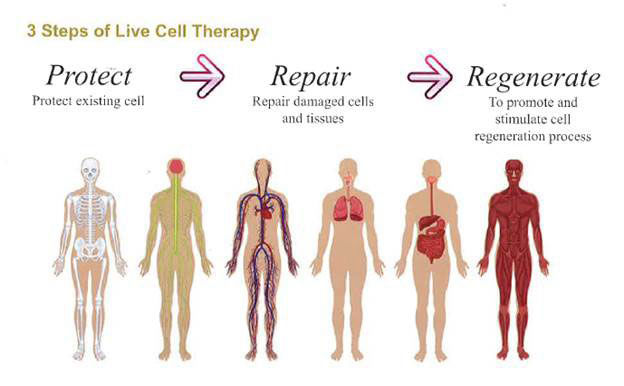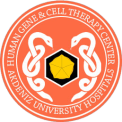ASGCT definition of Cell Therapy:
Cell therapy is defined as the administration of living whole cells for the patient for the treatment of a disease. The origin of the cells can be from the same individual (autologous source) or from another individual (allogeneic source). Cells can be derived from stem cells, such as bone marrow or induced pluripotent stem cells (iPSCs), reprogrammed from skin fibroblasts or adipocytes. Stem cells are applied in the context of bone marrow transplantation directly. Other strategies involve the application of more or less mature cells, differentiated in vitro (in a dish) from stem cells.
Historically, blood transfusions were the first type of cell therapy and are now considered routine. Bone marrow transplantation has also become a well-established medical treatment for many diseases, including cancer, immune deficiency and others. Cell therapy is expanding its repertoire of cell types for administration. Cell therapy treatment strategies include: isolation and transfer of specific stem cell populations, induction of mature cells to become pluripotent cells, administration of effector cells and reprogramming of mature cells into iPSCs. Administration of large numbers of effector cells has benefited cancer patients, transplant patients with unresolved infections, and patients with vision problems.
Several diseases benefit most from treatments that combine the technologies of gene and cell therapy. For example, some patients have a severe combined immunodeficiency disease (SCID) but unfortunately, do not have a suitable donor of bone marrow. Scientists have identified that patients with SCID are deficient in adenosine deaminase gene (ADA-SCID), or the common gamma chain located on the X chromosome (X-linked SCID). Several dozen patients have been treated with a combined gene and cell therapy approach. Each individual’s hematopoietic stem cells were treated with a viral vector that expressed a copy of the relevant normal gene. After selection and expansion, these corrected stem cells were returned to the patients. Many patients improved and required less exogenous enzymes. However, some serious adverse events did occur and their incidence is prompting development of theoretically safer vectors and protocols. The combined approach also is pursued in several cancer therapies.
Potential use of Stem Cells... See more

